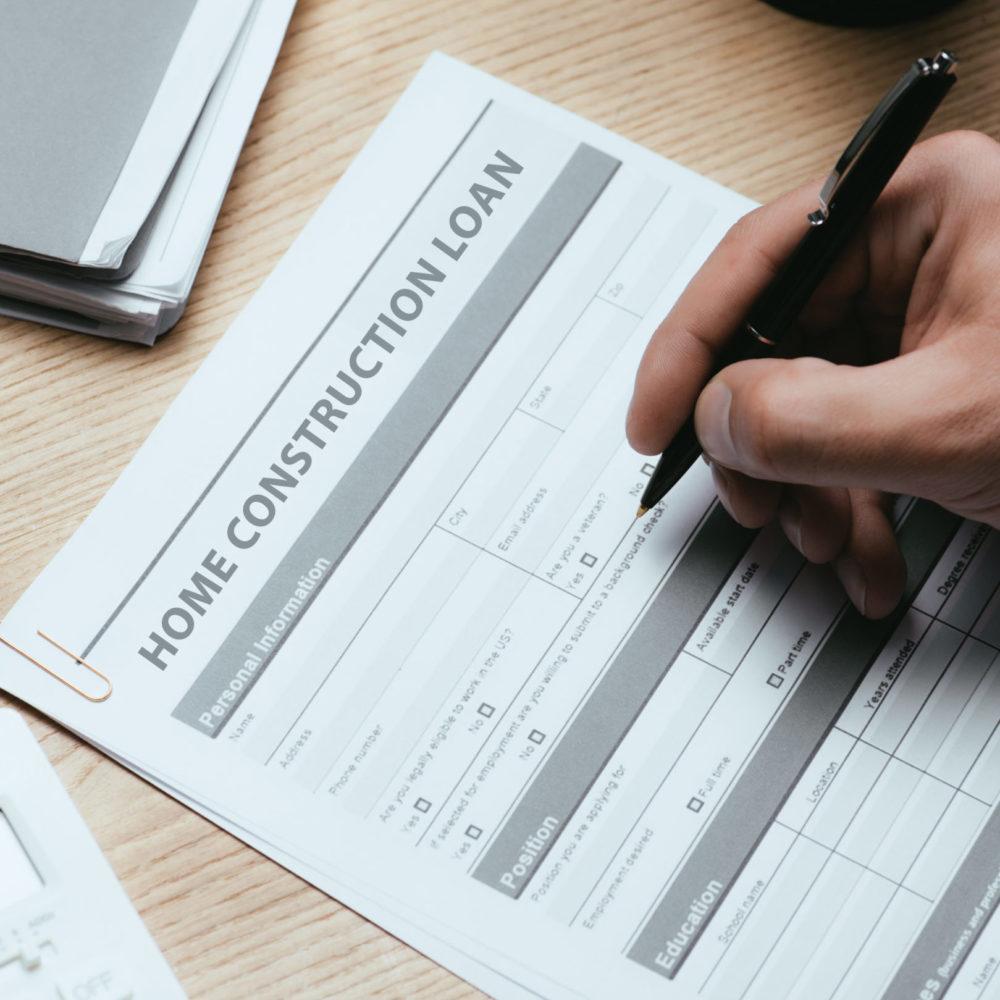About Us
When it's time to start shopping for a home loan, you've come to the right place. At Tampa Mortgage Advisors we offer the latest technology that makes the loan approval process simple and straightforward. We understand that our customers have busy lives and we can appreciate that. We are here to help you not only during normal business hours, but evening and weekends as well.
With over 22 years of mortgage industry experience, Tom Smith is an expert when it comes to home loans. Having held key roles in mortgage operations for the past 2 decades, he will help guide you to a fantastic home loan experience that tailored to your individual situation.
Utilize Latest Technology
We utilize the latest software technology that allows our whole loan application process to take place online which saves our customers time, hassle and money.
No Lender Fees
We take pride in finding our customers loans with the lowest rates in the industry and no lender fees.
Streamlined & Efficient
We hire only the best and brightest in the industry while keeping our company lean and efficient which is why we can offer rates as low as we do.
What We Offer
Conventional Loan
New Home Purchases / RefinancingConventional loans are the most common type of mortgage in the industry. They are funded by private lenders and then sold to government-sponsored enterprises like Freddie Mac and Fannie Mae.
Advantages: Conventional Mortgages usually require less paperwork and can often be obtained more quickly than government-insured loans. They can be approved without the delays commonly incurred with FHA or government-backed loans.
Disadvantages: Private mortgage insurance (PMI) is required when your down payment is less than 20%. A higher credit-score threshold and lower debt-to-income ratio is needed than with FHA loan.

FHA Home Loan
New Home Purchases / RefinancingA FHA loan is a home loan backed by the Federal Housing Administration -- a government agency created with the purpose of assisting home buyers to qualify for a mortgage. The FHA provides backing on loans made by FHA-approved lenders, protecting them from the risk of borrower default.
Advantages: FHA loans are one of the easiest loans to qualify for -- especially for those with less than perfect credit. You don't have to wait as long to get an FHA loan after you've had a major credit event such as bankruptcy or foreclosure. FHA loans have lower down payment requirements (as low as 3.5% in most cases.)
Disadvantages: You are required to pay an upfront mortgage insurance premium that equals 1.75% of your loan amount, as well as on-going mortgage insurance premiums.

VA Home Loan
New Home Purchases / RefinancingA VA home loan is a mortgage guaranteed by the U.S. Department of Veterans Affairs and issued by a private lender, such as a bank, credit union or mortgage company. VA loans are available to eligible active-duty service members, veterans and eligible surviving spouses.
Advantages: VA Loans require little to no down payment and don't require mortgage insurance. They typically have lenient credit requirements and offer better terms and interest rates than most other home loans.
Disadvantages: You will be required to pay a one-time VA funding fee since the VA home loan program doesn't require a down payment or mortgage insurance. VA loans canot be used for rental properties. Manufactured homes might require a down payment and may not be eligible for a 30-year term.

Debt Consolidation Mortgage
RefinancingA debt consolidation mortgage is a single loan using the available equity in your property to help pay off debts such as high-interest credit cards, car loans, and personal loans. By releasing some of the money you’ve already paid towards owning your home, you could reduce the amount of debt you owe overall, simplify your budget and take the pressure off your finances. A debt consolidation mortgage could help you reduce your overall monthly payments, leaving you with ‘freed-up’ cash to put towards your debts or to provide you with a more affordable standard of living.
Advantages: Combining multiple debts into one loan reduces the number of payments you have to keep track of. Your overall monthly payment is likely to be lower because future payments are spread out over a new and possibly extended loan term.

Cash-Out Refinance
RefinancingWhen you get a cash-out refinance, you pay off your original mortgage and replace it with a new loan . The new loan amount will be larger than the original. This option helps the borrowers use their home equity to get cash for any purpose.
Advantages: Cash-Out refinancing can be a great way to reduce one of your largest monthly expenses. This is one of the cheapest ways to get cash out of your home.

New Construction Mortgage
New Home PurchaseA construction mortgage is a type of loan that finances the building of a new home. The money loaned is usually advanced incrementally during the building phase as the work progresses. This mortgage usually only requires payment of interest during the construction period. When the building is finished, the loan amount comes due.
Advantages: You can draw the exact amount of money you need at the time you need it, and you are charged interest only on the amount you draw on during the construction.
Disadvantages: Since construction loans are very flexible, lenders impose higher standards to qualify in terms of credit scores and down payment. Interest rates for are usually higher than rates for a traditional mortgage.

Get Pre-Qualified For Home Loan Instantly
Get Pre-QualifiedHelpful Information for First-Time Home Buyers.
We make the loan process simple for you. First, we need you to complete a loan application. It does not matter whether this is done over the phone with one of our advisors or completed online by yourself.
The next step would be to create an account and securely upload your required loan documentation. This is normally going to consist of a copy of your state/federal government ID, a copy of your last 2 years of W-2s or 1040s, and 2 current paystubs.
For home purchases, we will then send you an approval letter. This document will outline the maximum amount that you can borrow, the interest rate of the loan, and the length term for the loan payback. If the property has not yet been selected, we will also have to figure out the yearly/monthly real estate tax amount and yearly/monthly homeowners insurance figures.
We will consult with you about the interest rate, and together we will determine if the rate should be locked or floated. The rate will need to be locked before the closing of your loan.
There will be a closing date set with the title company. Expect the mortgage closing process to take up to 30 days once you've identified a property and have an agreed-upon signed sales contract.
Most lenders consider your total monthly gross income as well as your monthly expenses when determining your eligibility for a home loan. Property taxes, PMI, association dues, insurance, and credit card payments are among the monthly expenses considered. We will gather all of the information needed, and help determine how much of a loan you can qualify for.
Credit scores typically range from 500 to 850. This figure can have a huge impact on whether or not you qualify for a loan and what terms you're provided.
A higher credit score (740+) gives a lender more trust in your ability to make timely payments, which could help you qualify for reduced mortgage interest rates and fees.
Conventional Loans (Fannie Mae and Freddie Mac Programs): 3-5% down
Government Insured Loans (FHA Loans): 3.5% down
VA loans: 0% down
* In addition to the down payment, the borrower is also responsible for pre-paid items and closing costs.
PMI is private mortgage insurance that buyers with a down payment of less than 20% of the home's purchase price are normally obliged to pay on a conventional (Fannie Mae or Freddie Mac) loan.
Many lenders have low down-payment plans that allow you to put as little as 3% down on a home. The PMI you pay protects the lender's investment in the event of a default on your mortgage. In other words, PMI protects the lender if you cannot pay the loan.
Please feel free to ask us about how PMI works in more detail.
* The borrower will always pay PMI on an FHA loan, no matter how much money is put down on the loan.
Whether you're buying a home today or in six months, we wil share our industry knowledge with you and walk you through a straightforward lending process.
We are available to you at all hours of the day and night, as well as on weekends. So, whether you need a loan approval emailed to you or simply have a simple question you want to be answered, we are here to assist you. When buying a home, there are plenty of things to be concerned about; don't let your mortgage be one of them.
